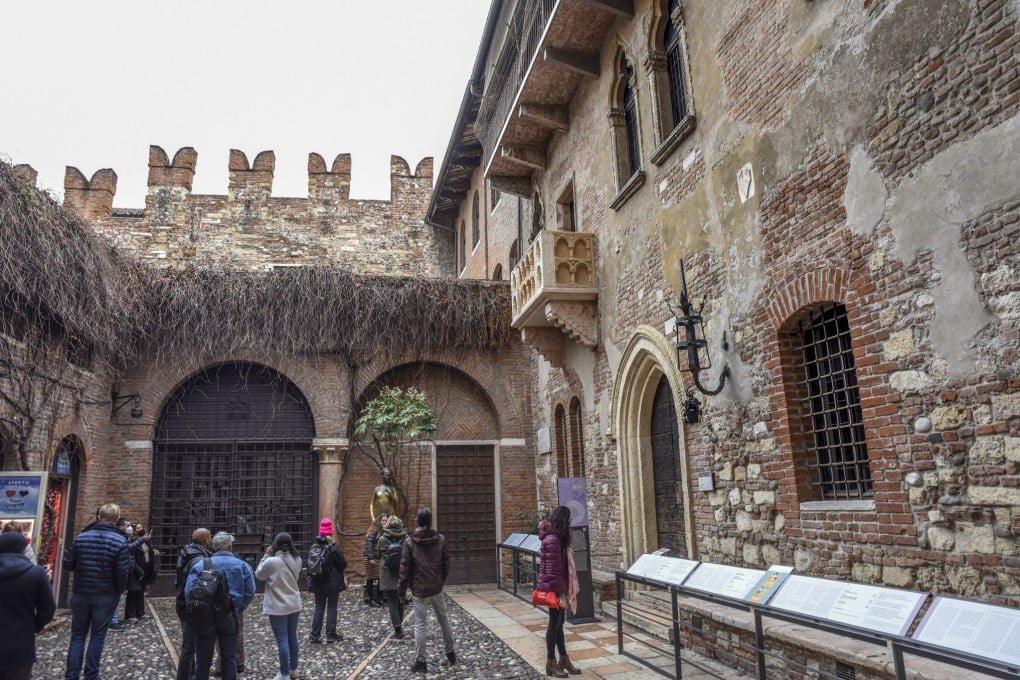Shakespeare didn’t create Romeo and Juliet? On the trail of the romantic story’s true author in northern Italy
- Verona’s tourism is heavily dependent on its association with Shakespeare’s love story, with huge numbers visiting Juliet’s balcony and the city’s museums
- The original story from which the Bard borrowed was written by Luigi Da Porto, a 16th-century soldier from Vicenza, a small city between Verona and Venice

The hum of the Piazza Delle Erbe market fading behind me, I walk down Verona’s Via Cappello to a weathered stone arch graffitied with love hearts. Through the gate, above a small courtyard, is the balcony where Juliet supposedly was serenaded by Romeo.
Dozens of tourists have lined up for their “wherefore art thou Romeo” moment beneath the balcony, perhaps unaware of who, ultimately, we have to thank for the world’s best-known romance.
It is not William Shakespeare, even though Romeo & Juliet helped make the English writer famous during his life and a legend after his death. Thanks to its universal themes of love found and lost, the story has become a template for romantic tragedies, influencing countless plays, films, books and television shows.
The play’s popularity is a huge draw card for Verona, a picturesque city of 260,000 people in northeast Italy. Built 2,000 years ago, Verona brims with historical sites, including a grand medieval fortress and a 1st-century amphitheatre that resembles Rome’s Colosseum.

Yet the city still has to vie for attention with nearby Milan, Venice and Florence, which helps explain why it leans so heavily on Romeo & Juliet as a marketing tool.
